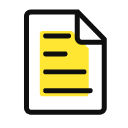
Saidong Zhang/Male/ years old
Phone: 15674119605
Mail: 3440217568@qq.com
WeChat: 15674119605
QQ: 3440217568
 Education Background
Education Background
Awards
• Received University-Level Excellent Thesis during university studies(Top 2 in major),scholarships, awards, and honors
• Participated in two major innovation projects in 2019, both approved provincially and completed in 2021
• Received a provincial third prize in the China Collegiate Computing Contest - Artificial Intelligence Creative Contest in 2019(National Top 48)
• Received a provincial first prize in the Central South Region of the China Computer Design Competition in 2019、and subsequently won the National Third Prize in the competition
• Received a provincial first prize in the China Collegiate Computing Contest - Mobile Application Innovation Contest in 2019、and subsequently won the National Second Prize in the competition(National Top 12)
• Published academic paper titled "Design and Implementation of a Cultural Relic Interactive Camera App Based on ARKit Technology" in the Hunan University of Technology Journal in 2020
• Applied for software copyright for the work "Cultural Relic Interactive Camera Software Based on AI and AR Technology" in 2020
• Participated in two major innovation projects in 2019, both approved provincially and completed in 2021
• Received a provincial third prize in the China Collegiate Computing Contest - Artificial Intelligence Creative Contest in 2019(National Top 48)
• Received a provincial first prize in the Central South Region of the China Computer Design Competition in 2019、and subsequently won the National Third Prize in the competition
• Received a provincial first prize in the China Collegiate Computing Contest - Mobile Application Innovation Contest in 2019、and subsequently won the National Second Prize in the competition(National Top 12)
• Published academic paper titled "Design and Implementation of a Cultural Relic Interactive Camera App Based on ARKit Technology" in the Hunan University of Technology Journal in 2020
• Applied for software copyright for the work "Cultural Relic Interactive Camera Software Based on AI and AR Technology" in 2020
Participate
• Entered the China Collegiate Computer Competition - Mobile Application Innovation Contest (National Top 200) in 2018
 Job Intentions
Job Intentions
Expected Job
iOS Development Engineer
Expected Location
Unrestricted
 Work Experience
Work Experience
2018/06 - 2018/09
Company: A certain company in Jiangxi Pingxiang
Position: iOS Development Engineer | Job Nature: Internship | Location: Jiangxi Pingxiang
Project Introduction:The iOS travel-residence software development of Laolai Bao, self-initiated participation in this internship during university vacation. Mainly provides services for the elderly to choose elder care bases, with functions similar to general travel-residence software.
Technical Stack:Swift+Objective-C
Work Content:
1. Completed basic UI interface design and functional design for the travel-residence software.
2. Responsible for the development and maintenance of iOS platform applications, ensuring stable software performance and good user experience.
3. Collaborated closely with the team to complete project requirement analysis, develop and execute the development plan.
4. Conducted code writing, debugging, and unit testing according to project requirements, ensuring code quality and system stability.
.
Technical Stack:Swift+Objective-C
Work Content:
1. Completed basic UI interface design and functional design for the travel-residence software.
2. Responsible for the development and maintenance of iOS platform applications, ensuring stable software performance and good user experience.
3. Collaborated closely with the team to complete project requirement analysis, develop and execute the development plan.
4. Conducted code writing, debugging, and unit testing according to project requirements, ensuring code quality and system stability.
.
2021/07 - 2023/04
Company: A Company in Leiyang, Hunan
Position: iOS Development Engineer | Job Nature: Full-time | Location: Leiyang, Hunan
Project Introduction:Common tool-type apps on the App Store, such as smart classification photo albums, 3D model AR cameras, text analysis diaries, and audio-text conversion tools.
Technical Stack:Swift+Objective-C
Work Content:
1. Responsible for the development and optimization of the smart categorization photo album application, ensuring a smooth user experience and accurate functionality.
2. Participate in the research and development of the 3D model AR camera application, achieving efficient image processing and model rendering.
3. Develop the text analysis diary application, enhancing the precision of text content analysis through algorithm optimization.
4. Design and implement the audio-text conversion tool, improving speech recognition accuracy and conversion efficiency.
5. Complete the assigned development tasks on time, ensuring project quality and progress meet the expected standards.
Technical Stack:Swift+Objective-C
Work Content:
1. Responsible for the development and optimization of the smart categorization photo album application, ensuring a smooth user experience and accurate functionality.
2. Participate in the research and development of the 3D model AR camera application, achieving efficient image processing and model rendering.
3. Develop the text analysis diary application, enhancing the precision of text content analysis through algorithm optimization.
4. Design and implement the audio-text conversion tool, improving speech recognition accuracy and conversion efficiency.
5. Complete the assigned development tasks on time, ensuring project quality and progress meet the expected standards.
2023/05/15 - 2023/08/24
Company: Shenzhen Shangmi Network Technology Co., Ltd. Zhuhai Branch
Position: iOS Development Engineer | Employment Type: Full-time | Location: Guangdong Zhuhai
Join the company as a full-time employee, responsible for iOS app development and iOS SDK development, completing several projects and addressing various daily development needs, ensuring all tasks are completed on time, to quality, and in full quantity.
Project Introduction: Xiao7 Mobile Game iOS SDK, which aims to integrate the SDK into third-party games and complete functions such as payment. The SDK's implemented functions can be referenced from third-party SDK platforms like Huawei Game Store, Xiaomi Game Store, and Bilibili Game Store.
Technical Stack:Swift+Objective-C+Python+C++
Work Content:
1. Be responsible for the development and maintenance of iOS platform applications, ensuring software performance stability and a good user experience.
2. Participate in the development of iOS SDK, optimizing the functionality and efficiency of the software development kit.
3. Work closely with the team to complete project requirement analysis, formulate and execute development plans.
4. Conduct code writing, debugging, and unit testing according to project requirements, ensuring code quality and system stability.
5. Proactively solve technical challenges encountered during development, improving product performance and security.
6. Regularly communicate with project managers, report project progress, and promptly adjust development strategies to respond to changes.
7. Actively participate in internal team knowledge sharing, contributing to the enhancement of team technical capabilities and knowledge accumulation.
Project Introduction: Xiao7 Mobile Game iOS SDK, which aims to integrate the SDK into third-party games and complete functions such as payment. The SDK's implemented functions can be referenced from third-party SDK platforms like Huawei Game Store, Xiaomi Game Store, and Bilibili Game Store.
Technical Stack:Swift+Objective-C+Python+C++
Work Content:
1. Be responsible for the development and maintenance of iOS platform applications, ensuring software performance stability and a good user experience.
2. Participate in the development of iOS SDK, optimizing the functionality and efficiency of the software development kit.
3. Work closely with the team to complete project requirement analysis, formulate and execute development plans.
4. Conduct code writing, debugging, and unit testing according to project requirements, ensuring code quality and system stability.
5. Proactively solve technical challenges encountered during development, improving product performance and security.
6. Regularly communicate with project managers, report project progress, and promptly adjust development strategies to respond to changes.
7. Actively participate in internal team knowledge sharing, contributing to the enhancement of team technical capabilities and knowledge accumulation.
2023/09- 2025/03
Freelance
Position: Full Stack Engineer | Location: Leiyang, Hunan
Peer started a business and invited me to serve as a Full Stack Engineer, responsible for iOS, Android, frontend, backend, and database design, among other tasks.
Project Introduction:Completed several text analysis diary apps, resource downloaders, wallpaper apps, and utility apps, addressing various daily development needs.
Technical Stack:Swift+Objective-C+Python+Dart+Java+C+C++
Work Content:
1. Responsible for the architecture design and development of iOS platform applications, ensuring application performance and stability.
2. Participated in the full-cycle development of Android applications, including interface design, functionality implementation, and performance optimization.
3. Designed and implemented backend services, providing data storage, processing, and API services to support frontend application requirements.
4. Led the development of a text analysis date app, enhancing user experience through algorithm optimization.
5. Managed the functional expansion and performance improvement of the album classification app, achieving intelligent image categorization.
6. Developed a resource downloader app, optimizing the download process to improve user efficiency.
7. Designed the user interface and interaction logic for the wallpaper app, enhancing its visual appeal and user satisfaction.
Project Introduction:Completed several text analysis diary apps, resource downloaders, wallpaper apps, and utility apps, addressing various daily development needs.
Technical Stack:Swift+Objective-C+Python+Dart+Java+C+C++
Work Content:
1. Responsible for the architecture design and development of iOS platform applications, ensuring application performance and stability.
2. Participated in the full-cycle development of Android applications, including interface design, functionality implementation, and performance optimization.
3. Designed and implemented backend services, providing data storage, processing, and API services to support frontend application requirements.
4. Led the development of a text analysis date app, enhancing user experience through algorithm optimization.
5. Managed the functional expansion and performance improvement of the album classification app, achieving intelligent image categorization.
6. Developed a resource downloader app, optimizing the download process to improve user efficiency.
7. Designed the user interface and interaction logic for the wallpaper app, enhancing its visual appeal and user satisfaction.
2025/03-2025/04
Company: Time Guardian (Guangzhou) Network Technology Co., Ltd.
Position: iOS Development Engineer | Job Nature: Internship | Location: Guangdong Zhuhai
Project Introduction:Engaged in iOS app development, completed several projects such as image style conversion apps, addressed various daily development needs, and resigned due to company business restructuring.
Technical Stack:Swift+Objective-C
Work Content:
1. Developed and debugged code, conducted unit tests to ensure code quality and system stability based on project requirements.
2. Proactively resolved technical challenges during development, enhancing product performance and security.
3. Regularly communicated with project managers, reported progress, and adjusted development strategies to adapt to changes.
4. Actively participated in team knowledge sharing sessions, contributing to the enhancement of team technical skills and knowledge accumulation.
Technical Stack:Swift+Objective-C
Work Content:
1. Developed and debugged code, conducted unit tests to ensure code quality and system stability based on project requirements.
2. Proactively resolved technical challenges during development, enhancing product performance and security.
3. Regularly communicated with project managers, reported progress, and adjusted development strategies to adapt to changes.
4. Actively participated in team knowledge sharing sessions, contributing to the enhancement of team technical skills and knowledge accumulation.
 Professional Skills
Professional Skills
Academic Papers
Language Proficiency
Programming Skills
Swift:
Proficient in Swift programming, having read numerous books related to Swift, keeping up with the development of the Swift language and related technologies, capable of developing real-world projects using Swift, with a strong interest in Swift programming.
Objective-C:
Proficient in Objective-C programming, having read numerous books related to Objective-C, capable of skillfully developing real-world projects using Objective-C, and having successfully completed several projects utilizing Objective-C.
Dart:
Proficient in Dart programming, having read numerous Dart-related books, capable of using Dart to develop Flutter projects with expertise, and having developed several Flutter projects.
Python:
Proficient in using Python for rapid prototyping, pre-deployment data validation, and other tasks;
familiar with using Scrapy for data scraping and analysis; skilled in using Python to crawl images or other resources.
SQL:
Familiar with common SQL commands and capable of writing SQL statements for most business scenarios.
Shell:
Adept at using everyday Linux commands and writing simple Shell scripts.
Data Structures and Algorithms:
Familiar with common data structures such as arrays, hash tables, stacks, queues, trees, and graphs.
Proficient in common algorithms like sorting, greedy algorithms, dynamic programming, approximation algorithms, string matching, tree, and graph algorithms. Able to solve problems using the C++ Standard Library.
Other:
Have experience with Java, JavaScript, and C#;
capable of writing C/C++ programs with a solid foundation;
has some exposure to assembly, PHP, Ruby, MATLAB, Kotlin, and other languages.
Interaction Design
Material Processing:
Use Adobe's PhotoShop, Illustrator, Premiere, After Effects, etc., for project material processing.
Prototype Design:
Use Sketch, Mockplus, Adobe XD, MoDao, and MuKe for project prototype design.
Blog
Resume
Open-source Framework
Jazzy Code Explanation Document
 Project Experience
Project Experience
1. Studied and researched many iOS-related frameworks, applying excellent frameworks to real-world project development.
2. Used SwiftLint to standardize code, fostering good coding habits.
3. Utilized Git for code hosting, facilitating team collaboration.
4. Employed CocoPods for project modularization, enhancing development efficiency.
5. Set up automated testing tools for the project, aiding in improving team efficiency.
6. Gained some understanding of machine learning and augmented reality technologies;
7. Independently developed an AI and AR-based cultural relics interactive camera App and successfully published it.
8. Independently developed several iOS software and maintained some iOS projects.
9. Participated in several provincial research projects during university, published one paper, and applied for one software copyright.
10. Familiar with many well-known iOS projects on GitHub and possess certain iOS development capabilities.
11. Applied machine learning technologies such as image recognition, object detection, and neural networks in actual development.
12. Used Python web crawlers to scrape images from the internet, organized them into a dataset, and used them for machine learning model training.
13. Built a server using Swift Perfect and successfully deployed it to Alibaba Cloud, making it publicly accessible.
14. Built a personal blog using Hexo, hosted it on a purchased domain, and regularly updated the blog posts.
15. Created a book using GitBook, linked it to GitHub, and published it on the personal blog.
16. Use SQLite.swift, Realm, Core Data, etc., reasonably in the project for database operations.
17. Use URLSession, Alamofire, Moya, RxAlamofire, SwiftyJSON, HandyJSON, ObjectMapper, etc., reasonably in the project to handle network requests and JSON parsing.
18. Use RxSwift, RxCocoa, NSObject+Rx, RxGesture, etc., reasonably in the project for functional reactive programming.
19. Use development patterns such as MVC, MVP, MVVM reasonably in the project.
20. Use URLSession to complete file downloads in the project, and use FileManager to perform various file operations such as extraction, traversal, writing, and moving, while paying attention to file cleanup work (e.g., cleaning up zip packages).
21. Independently developed the open-source framework InterfaceKit, supporting all four platforms: iOS, macOS, tvOS, and watchOS. The framework can be installed via multiple methods including CocoaPods, Carthage, Swift Package Manager, and manual integration. Jazzy was used to generate code documentation for the framework, and Github Actions workflows were implemented for continuous integration with a passing status.
22. Proficient in developing iOS projects using Swift and Objective-C, with several completed projects.
 Self-Evaluation
Self-Evaluation
I have strong self-learning abilities, abundant project experience, excellent communication skills, and great teamwork capabilities.
My current goal is to become an outstanding iOS developer, primarily engaged in mobile application development.
I possess solid experience in mobile app development, am proficient in Swift, Objective-C, and Dart, familiar with various well-known frameworks, and have a good understanding of software development concepts.
 Future Plans
Future Plans
1. My current goal is to become an outstanding iOS development engineer, particularly in areas related to mobile application development.
2. Read the source code of excellent iOS works and frameworks to deeply study the design concepts of outstanding iOS development projects.
3. Actively participate in open-source work, aiming to contribute to the open-source community by creating open-source libraries and frameworks used by a large number of people.
4. Learn related theories in machine learning and augmented reality, and apply them to practical development.
 Personal Projects
Personal Projects
• RunInto is an AR cultural relics interactive camera app developed using ARKit augmented reality, Core ML machine learning, and Metal advanced 3D graphics rendering technologies. I independently completed the entire development process.
• RunInto is an iOS platform-based app that integrates cultural relics identification and detection, cultural relics 3D modeling, and interactive functions for cultural relics.
• The system can accurately and efficiently achieve cultural relics identification and detection, acquisition of related information about cultural relics, 3D appreciation of cultural relics, and interaction between users and cultural relics, providing users with an immersive experience while offering great convenience for relic enthusiasts to authenticate and appreciate cultural artifacts.
• The system strictly follows software engineering development concepts, undergoes repeated software system testing, and ultimately achieves a user-friendly, stable, secure, and aesthetically pleasing educational mobile application.
• I used Python to write tools for collecting cultural relics location information from image datasets, generating JSON files after collection. The image dataset and JSON files were input into Create ML for training, and the trained target detection model was called in the app using Core ML to achieve cultural relics target detection functionality.
• I used Xcode to convert cultural relics 3D models from dae format to scn format for project development, and used ARKit to implement functions such as placing, moving, scaling, and rotating cultural relics 3D models.
• Use URLSession to download 3D models, machine learning models, images, and other files from the network. Decompress, move, and read these files using FileManager and Zip to implement the use of various resource files within the app, while performing related file cleanup.
• Use software such as Photoshop, Illustrator, Premiere, and After Effects for project material processing.
Use Mo Dao to finish project prototype design.
• Won the first prize at the provincial level and second prize nationally in the China University Computer Competition - Mobile Application Innovation Contest.
• Published the academic paper titled "Design and Implementation of an Interactive Camera App for Cultural Relics Based on ARKit".
• Obtained software copyright for "Interactive Camera Software for Cultural Relics Based on AI and AR Technology".
• InterfaceKit is aimed at easily implementing the use of UIKit, AppKit, and WatchKit interfaces in SwiftUI views.
• InterfaceKit supports all four platforms: iOS, macOS, tvOS, and watchOS.
• Installable via multiple methods including CocoaPods, Carthage, Swift Package Manager, and manual integration.
• Generates documentation using Jazzy for the framework.
• Uses GitHub Action workflows for continuous integration, with a passing status.
• The provided example code runs on all four platforms: iOS, macOS, tvOS, and watchOS.
• The X7 Mobile Game iOS SDK is designed to integrate into third-party games and complete functions such as payments.
• The X7 Mobile Game iOS SDK needs to implement features including groups, chat, purchases, vouchers, gifts, and UI optimization.
• The X7 Mobile Game iOS SDK can be installed through a manual integration method.
• The X7 Mobile Game iOS SDK has a broad business scope and has been in continuous operation for nearly a decade.
• The functionality of the X7 Mobile Game iOS SDK can be referenced from third-party SDK platforms such as Huawei Game Store, Xiaomi Game Store, and Bilibili Game Store.